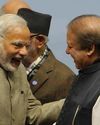This month also marks the 50th anniversary of the Six-Day War. An evaluation of how it changed Israel and the world.

FIFTY YEARS AGO, on the morning of 5 June, the Middle East was about to witness a tectonic shift. It all started at 8:10 AM Egyptian time. Israeli jets fitted with rockets started taking off from their bases. Within a few minutes, more than 200 jets, 95 per cent of total air power of the Israel Air Force (IAF), were in the air flying low enough to avoid getting detected by Egyptian radars. The surprise element was the key to success of the operation. Most of the jets first flew towards the Mediterranean Sea and then turned towards Egypt. Others took the Red Sea route to enter through the southern side. At 8:30 AM, the jets were inside the enemy airspace undetected.
Israel’s aim was to render the Egyptian bases unoperational and damage as many jets as possible. Their task was further made easy by the fact that Egyptians parked different types of jets in separate bases. This helped the IAF prioritise the targets, taking out the most lethal ones first. Thanks to a robust intelligence network inside Egypt providing real time information, IAF already knew the locations of all the enemy jets and pilots assigned to them.At 8:30 AM, Israeli jets hit their first target. It was just another day for Egyptian pilots who were having breakfast. They had returned from routine morning patrol. In 30 minutes, IAF had neutralised six air bases and taken out half of the enemy’s air force. By 10:30 AM, Egyptian air force, as a fighting force, had ceased to exist.
Though it may sound farcical to suggest that the war didn’t start on 5 June but it isn’t entirely untrue. The events that would culminate into Six-Day War were set in motion weeks ago, if not months.
This story is from the June 2017 edition of Swarajya Mag.
Start your 7-day Magzter GOLD free trial to access thousands of curated premium stories, and 9,000+ magazines and newspapers.
Already a subscriber ? Sign In
This story is from the June 2017 edition of Swarajya Mag.
Start your 7-day Magzter GOLD free trial to access thousands of curated premium stories, and 9,000+ magazines and newspapers.
Already a subscriber? Sign In

Refuging Progess
There is a well-orchestrated global conspiracy to deny scientific and technological developments from the West to Third World countries.

The Monk Of Science
Vivekananda believed that Religion should be subjected to scientific methods of investigation. The third and concluding part of our series on the Swami and his views on science.
The Next Step
Indian technical manpower can be trained for high-value-added emerging services in the era of mass commoditisation of hardware.
The Threat Of Autarchy
The force of globalisation is an irreversible reality, and it is countries like India and China that will nurture it going forward.

Neanderthals: The Womb Of Caves
Recent discoveries indicate that Neanderthals may have had a rich inner life, including symbolic thought. Indeed, they may have been the progenitors of human religions.

Getting India's World Right
Incremental concessions will get India nowhere with Pakistan and China. What we need is a classically conservative foreign policy, based on realism.

The Hesitant Orbit
In order to march boldly ahead into the deep space, New Delhi must work towards building a station, boost its techno-economic planning and use the Indian Space Research Organisation smartly.

Nudges And Narratives
The debate surrounding Sanjay Leela Bhansali’s Padmavati brings India a complex network of portraits within a cultural world-system.

The Spell Of Specialisation
THE INDIAN ADMINISTRATIVE SERVICE NEEDS AN URGENT REJIG. THE KEY TO SPEED AND EFFICIENCY LIES IN PUTTING AN END TO A GENERALIST APPROACH AND IN GOING FOR A NEW SERVICE.
The Great Gamble
With demonetisation, the prime minister has taken a huge risk— both economic and political. He must succeed, because this move could transform both our economy and our society.